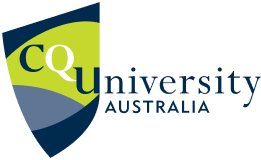Library and Information Week - Roots of Democracy
Welcome to Library and Information Week 2024
Library and Information Week celebrates the work that library and information workers do all around Australia. This year's theme 'Roots of Democracy' focuses on accessing and sharing information openly.
Finding and evaluating Open Access materials
The best place to find reliable open access materials are databases that provide access to quality, peer-reviewed scholarly materials such as DOAB and DOAJ. You can use the Library’s Database Search to locate these databases and other open access databases.
You can also use Library Search to search for open access scholarly materials. To do this:
- Conduct a search in Library Search.
- Select the ‘Open Access’ filter on the right-hand side of the page.
- To find peer-reviewed materials, select the ‘Peer-reviewed Journals’ filter on the right-hand side of the page.
As well as scholarly materials, you can also use Google Images to locate open access images. Instructions are available from the Google Support page.
For further information on Creative Commons licenses, see the Open Access and Creative Commons page.
When deciding on the content to use, especially scholarly resources, it is important that you look at the authority, objectivity, and purpose of the content.
For example, if you find a journal article, you will want to check if the article has been peer-reviewed. The benefits of peer-reviewed resources is that they have undergone a quality check before they are published. This check usually involves a review by an editor and one or more subject matter specialists before publication.
For further information on the peer review process as well as checking the authority, objectivity, and purpose of content, see the Evaluating Resources page.
Generative AI, especially Large Language Models (LLMs), have many limitations and potential that must be considered before using them as a part of your research and study. Due to the way they compile information from multiple sources of varying quality and accuracy, you need to apply caution to using the provided information. Compare the output to more reliable sources such as your lecture material or other scholarly publications on the topic. A great way to think about content generated by LLMs is similar to Wikipedia, it can be useful as a starting point to get a better understanding of a topic, but should not be directly quoted or used as a primary source.
More information on this topic is available from MyCQU for students and StaffNet for staff.
The publication of openly accessible datasets to accompany other publications is an increasingly common practice. Open data allows for independent review of the reported results and offers greater opportunity for expanding on the research for new purposes/contexts.
Research datasets are usually published in discipline specific repositories. They can also be found in dedicated search engines and discipline lists. These are listed below:
- Re3Data – A search engine for data repositories, where you can search by subject area, country, format and more.
- Google Dataset Search – This is the dataset equivalent to Google Scholar.
- Data.org.au – Hosts datasets for various Australian government bodies.
- Research Data Australia – This search contains data from various Australian universities and other research providers.
- Figshare.com – This will locate not only datasets but other research outputs.
As part of the publication process, scholarly material is reviewed to help avoid any overt bias or falsity. Whereas non-academic online content is often published by anyone and without any review on what they have written. This means incorrect information may be published without being picked up on. The platforms that contain non-academic content are also more prone to author bias. Therefore, you will want to check the authority of the author, publisher, and citations used before using these materials. For further information on this process, see the Evaluating Resources page.
Publishing your research Open Access
Open access publishing falls under a number of models:
- Green Open Access
- Gold/Hybrid Open Access (comes with cost to the author)
- Diamond Open Access
To reduce or eliminate the cost of publishing your article in an open access journal, you can:
- Submit to a journal with a Read and Publish Agreement
- Submit an Open Access Publication Scheme application
- Deposit your Author's Accepted Manuscript in Research Elements
More details about these options are available from the Open Access Publishing page.
CQUniversity highly encourages all researchers to publish research data openly to our institutional repository aCQUIRe via Data Manager wherever possible.
Instructions on how to do this are available on our Data Management Support page.
Data published to aCQUIRe will be able to be found in Google Dataset Search, Research Data Australia and Figshare.com . More information about aCQUIRe is available from the support page.
Other research outputs such as posters, reports and even Non Traditional Outputs (NTOs) can be deposited to Research Elements for publication to our institutional repository aCQUIRe.
For more information about publishing to aCQUIRe visit the library’s support page.
The easiest way to ensure that you can share your research openly is to properly license it upon publication. The most commonly used license for Open Access publishing is Creatives Commons (CC) license. All CC licenses include the By or Attribution element, requiring that anyone using the content fully cites the material to the original author. CC licenses also have three optional elements that can be added to allow for even greater control of access permissions.
More information about CC licensing is available on the Open Access and Creative Commons library page.
Explore Further
Open Access and Creative Commons
Learn how to utilise Open Access and Creative Commons content.
Scholarly Publishing and Metrics
Learn about open access publishing, read and publish agreements, and research metrics.

Evaluating Resources
Questions to ask yourself when you are evaluating information you’ve found for inclusion in your assignments or research.



